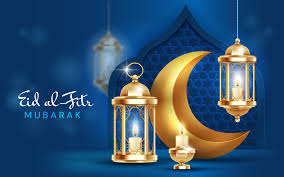Eid-ul-Fitr 2025: Everything You Need to Know
Define Eid-ul-Fitr
Eid-ul-Fitr, also known as the "Festival of Breaking the Fast," is a significant Islamic holiday that marks the end of Ramadan. It is a joyous occasion celebrated by Muslims worldwide with prayers, feasts, and acts of charity. The day begins with a special prayer, known as the Eid prayer, followed by community gatherings and sharing meals with loved ones.
Define Ramadan Reward
Ramadan is a sacred month in Islam, observed with fasting from dawn to sunset, increased prayers, and acts of worship. The spiritual rewards of Ramadan include purification of the soul, heightened devotion, and an opportunity to draw closer to Allah. Fasting during Ramadan is believed to bring immense blessings, forgiveness of sins, and a chance to earn eternal rewards in the Hereafter.
What is the expected date of Eid-ul-Fitr 2025?
Eid-ul-Fitr is celebrated at the conclusion of Ramadan, the Islamic holy month of fasting. In 2025, Eid-ul-Fitr is expected to fall on Sunday, March 30, 2025, or Monday, March 31, 2025, depending on the sighting of the moon in different regions. The lunar calendar plays a pivotal role in determining the exact date.
What are the two dates for Eid in 2025?
In 2025, Muslims will celebrate two major Eids:
- Eid-ul-Fitr, which marks the end of Ramadan and will occur in March 2025.
- Eid-ul-Adha, which commemorates the willingness of Prophet Ibrahim (AS) to sacrifice his son in obedience to Allah, is expected to be observed in June 2025.
What date is Ramadan in 2025?
Ramadan in 2025 is expected to begin on the evening of Friday, February 28, 2025, and end on the evening of Saturday, March 29, 2025. These dates are subject to the sighting of the crescent moon, which officially marks the start and end of Ramadan.
Is Eid al-Fitr the same date every year?
No, Eid-ul-Fitr does not fall on the same date every year. The Islamic calendar follows the lunar cycle, which is approximately 10 to 12 days shorter than the Gregorian calendar. As a result, the date of Eid-ul-Fitr shifts earlier each year by about 10 days.
Which year will Ramadan be twice?
Due to the shorter lunar calendar, Ramadan will occur twice in a Gregorian calendar year approximately every 33 years. The next time this happens is expected to be in 2030, with Ramadan occurring in January and December of that year.
What dishes are made on Eid-ul-Fitr?
Eid-ul-Fitr is a festive occasion celebrated with a variety of traditional dishes that vary across cultures. Common dishes include:
- Sheer Khurma: A sweet vermicelli pudding made with milk, nuts, and dates.
- Biryani or Pulao: Flavorful rice dishes with meat or vegetables.
- Kebabs and Grilled Meat: A variety of spiced, marinated meats grilled or fried.
- Samosas and Pakoras: Popular appetizers filled with meat or vegetables.
- Desserts: Such as baklava, gulab jamun, or maamoul.
How to make Eid special?
Eid-ul-Fitr is a time of joy and togetherness. Here are some ways to make the celebration memorable:
- Decorate Your Home: Use festive lights, banners, and floral arrangements.
- Wear New Clothes: Dress in traditional or festive attire.
- Host a Feast: Prepare a special meal for family and friends.
- Exchange Gifts: Share gifts, especially with children, to spread happiness.
- Give Charity: Fulfill the obligation of Zakat al-Fitr to help the less fortunate.
- Visit Loved Ones: Spend quality time with family and friends.
What food is Zakat Al-Fitr?
Zakat al-Fitr, or the charity of breaking the fast, is an obligatory act for Muslims to give before the Eid prayer. It is usually provided in the form of staple food items such as:
- Wheat
- Rice
- Dates
- Barley
- Other grains or equivalent monetary value This ensures that those in need can also enjoy a meal on Eid.
Eid-ul-Fitr Culture and Food
The culture of Eid-ul-Fitr is deeply tied to food and hospitality. In many households, a variety of dishes are prepared to welcome guests and celebrate the occasion. Sharing food with neighbors and the underprivileged is an integral part of the tradition. Across the globe, Muslims showcase their unique culinary heritage while maintaining the spirit of unity and gratitude that defines Eid.
Conclusion
Eid-ul-Fitr is more than just a celebration; it is a time to express gratitude, strengthen bonds, and share joy with others. The festival highlights the core values of Islam, such as compassion, charity, and unity. As Eid-ul-Fitr 2025 approaches, Muslims around the world will prepare to welcome this special occasion with prayers, delicious food, and acts of kindness, making it a memorable event for all.










0 Comments